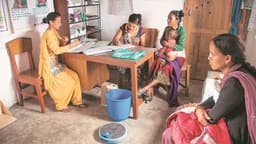Home / Health / Colonial Famines Fuel South Asia's Health Crisis
Colonial Famines Fuel South Asia's Health Crisis
25 Nov
Summary
- Colonial exploitation caused widespread famine, altering South Asian genetics.
- South Asians face higher rates of diabetes and heart disease.
- Epigenetics shows how famine adaptations are passed across generations.

A compelling argument links South Asia's escalating health crisis to its colonial past. Physician Dr. Mubin Syed's research reveals that historical famines, systematically induced by British administrative decisions and grain extraction, profoundly impacted South Asian biology.
These prolonged periods of starvation led to genetic and epigenetic changes, passed down through generations as survival adaptations. While these adaptations helped ancestors endure hardship, they now predispose modern South Asians to higher rates of heart disease, diabetes, and metabolic syndrome.
The crisis is multifaceted, but understanding this historical trauma offers a path toward resilience. By acknowledging this legacy, communities can foster compassion and pursue targeted health strategies, including dietary adjustments and regular screenings, to mitigate current health challenges.




